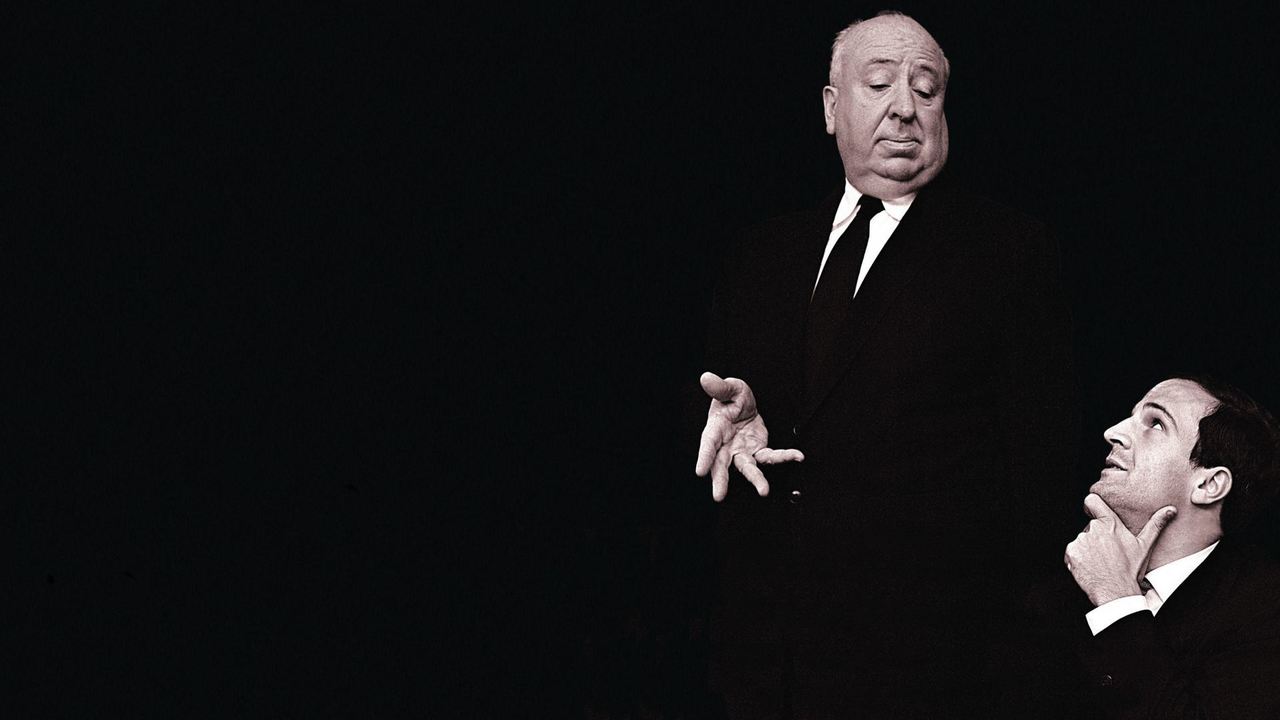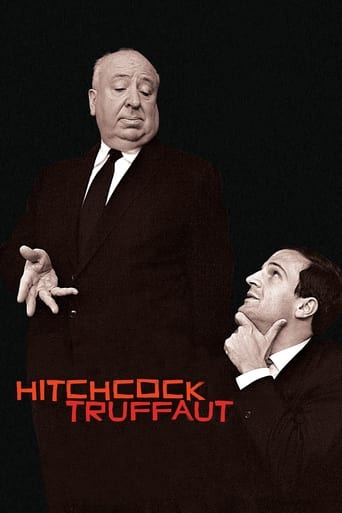Lucybespro
It is a performances centric movie
Matrixiole
Simple and well acted, it has tension enough to knot the stomach.
Iseerphia
All that we are seeing on the screen is happening with real people, real action sequences in the background, forcing the eye to watch as if we were there.
Myron Clemons
A film of deceptively outspoken contemporary relevance, this is cinema at its most alert, alarming and alive.
Hitchcoc
I would encourage anyone who viewed this film to get a copy of the book. For it is in the book that we learn about the master and what he did and how he thought. This was Truffaut's baby and it is incredible that this is left for us. The strength of the film is in the commentaries of the participants. We get a picture of the admiration shared by the two directors. That said, despite the limitations of 85 or so minutes, we are made privy to techniques employed. The focus is really on two films, "Vertigo" and "Psycho." That is enough in some respects because most of Hitchcock's dazzle is employed here. The lesson learned is that Hitchcock as a stylist and a sort of visual tyrant made him what he was. One interesting point made was what would have happened if he had been forced to work with egos like Marlon Brando, James Dean, or Dustin Hoffman, who certainly would have tried to manipulate Hitchcock. Montgomery Clift tried and failed; so we get a sense of that thing. All in all, this is decent, but it is more the observation of the director who attempted to produce a summation of the book. It only works in bits and pieces. Still, I'm glad I got a chance to see it.
alexanderdavies-99382
It took many years for America to acknowledge Alfred Hitchcock as being an artist and an exceptional director. He was liked upon as being more of an entertainer than anything else. This was never the case. In the early 1960s, a French director called François Truffaut almost singlehandedly changed Hitchcock's legacy to being that of a filmmaker. This was achieved through lengthy discussions between the two men on the subject of Hitchcock's career as well as on cinema in general. A book was eventually published that covered all details of Hitchcock films. The above documentary chronicles the talks that transpired between Hitchcock and Truffaut. Directors from different countries and different eras, are interviewed regarding how Alfred Hitchcock has proved to be a big influence on them. In some ways, this documentary is the ultimate tribute to the "Master of Suspense." It sums up his talent very well by the discussions of the techniques Hitchcock used, as well as his unique gift for storytelling. An excellent documentary about one of the finest directors in the history of cinema.
Vihren Mitev
We can not overlook this title because of the admiration we feel for these two directors. And when we understand that it comes about also for a book our respect has already risen to the highest possible extent.Documentary filmed tape showing the desire of Truffaut to get acquainted with the great Hitchcock.Ultimately, both directors meet and they develop a friendship. To a large extent this unusual relationship influenced Truffaut in his future work.As analysts of the films of Hitchcock are invited legends in the film business as Scorsese, Linklater and many others. If you're a fan, do not pass by this title.My blog: http://vihrenmitevmovies.blogspot.bg/
MisterWhiplash
I think if I were a budding film buff, this would be one of the essential movies in my collection. I even remember when I was about 13/14 years old when the Starz channel had some made-for-TV doc in the late 90's about Hitchcock (it featured Bogdanovich saying the exact same words, I can remember them it's that clear, about Psycho as he does in this doc, plus De Palma, who isn't here perhaps as it'd be too obvious), but it has the bonus of being about this book and what that was all about: understanding film grammar and an artist's worldview. What is that worldview? Cinema, and pure cinema, as much as possible, even when it doesn't make sense. Actually Hitchcock addresses that in one of the audio excerpts that were recorded for the book: "logic is dull." It's all talking heads, but that's fine as well - while I might have liked a little more of the tension between the two directors elaborated on (I may also have more insight from reading a biography on Hitchcock where the whole Truffaut book interview) where at times this was more probing and uncomfortable on Hitchcock's part, it still works - because this is made for two audiences: those who know a lot about Hitchcock, and those who may be more casual, like only seen Psycho or Vertigo or North by Northwest at best. Or for young people who may be told about Hitchcock or that something is Hitchcockian, to come across this is an excellent little film seminar, if not film school, which has the wise choice of showing clips from most of the major Hitchcocks, but also the silents (a piece on Easy Virtue is wonderful, as well as extolling a few of the really pure cinematic moments of Topaz).But what is "pure" cinema in the Hitchcock sense? Not having to explain much, not even having to rely on the usual exposition-logic that bogs films down sometimes, especially in modern cinema. For Hitchcock a way of elevating a thriller or simple suspense picture or a movie about a man stabbing a woman in a shower to something close to poetry is about manipulating time. While becoming a master of manipulating time and space (and space being something taken for granted by filmmakers, here it's emphasized several times and for good reason), it comes down to a mixture of... knowing the most effective ways to tell the story, to know more-so what *not* to show than what to do, having your actors properly know what they're doing and bring an emotional dimension that the director can't bring (which could bring conflict with a guy like Montgomery Clift), and having the ability to bring the personal into the commercial.While one can certainly say with good reason "well, just go read the book", I think Kent Jones' aim is to make clear how much of a global impact, from movie lords like Scorsese and Fincher and Linklater to the French (Assayas and Desplain) to Kiyoshi Kurosawa, this man had on cinema, and that the book was a force for real change and reevaluation of what cinema meant to the art form. There's the temptation at different times, depending on how one looks at his career, to say that HItchcock got too much attention and also not enough, which is what Truffaut did as being simply a gigantic fan himself. So it makes sense that the highlights of the doc are long looks at Vertigo (how Scorsese breaks down individual sequences would make this a recommendation for me alone) and Psycho, and how the power of the film came and still comes from what Hitchcock does to his audience's expectations: "I'm not going to give you what you want, I'm going to give you something else." In about 80 minutes I got what I wanted and hoped for: a fun and loving tribute to a man's career through another artist's work (Truffaut gets a little time as well via 400 Blows and Jules & Jim), though it's not without a few little touches of self-doubt (what if he had done *more* experimentation, not stuck in the thriller genre his whole career). I only wish it was longer.

